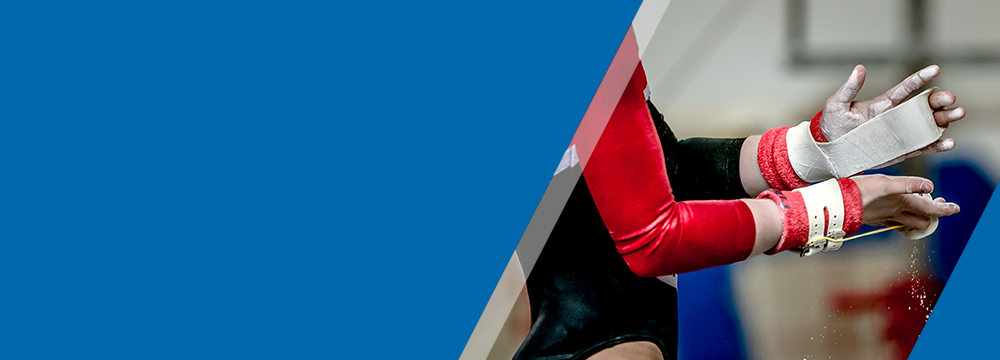Navigating the Uneven Bars: When Are Companies Allowed to Use the Olympic Trademarks?
July 27, 2021 – Articles
The Tokyo 2020 Olympic Games, one of the world’s most talked about and anticipated events, finally kicked off on Friday, July 23, 2021, after a long wait due to COVID-19. Every time the Olympics comes around, a common internet myth will persist that warns: Unless you are an Official Sponsor, you are barred from talking about the Olympics. While that may be true in certain circumstances, it is not always the case. We have put together a quick guide of key things to keep in mind if you want to cheer on competitors at the Olympics as a business over the next few weeks.
Trademark rights in the OLYMPIC marks are grounded in the Ted Stevens Olympic and Amateur Sports Act, which grants the United States Olympics and Paralympics Committee (USOPC) exclusive and specific ownership of 13 Olympics-related marks, and any combination thereof, including OLYMPIC, the famous Olympics logo of five interlocking rings, OLYMPIAD, PARAOLYMPIC, and PARALYMPIAD.
The USOPC has also registered these trademarks and will typically apply for a number of trademarks related to a specific Olympics, like TOKYO 2020, sometimes even long before the host city has been awarded. In fact, the U.S. application for TOKYO 2020 was filed in February 2012 along with applications for the other host city contenders at the time.
As a trademark owner, the USOPC has the duty to ensure the integrity and goodwill of its brand, just like every other business. As such, the USOPC will strictly monitor the use of the OLYMPIC trademarks and is likely to object to anything it deems a “commercial” use of the marks.
“Commercial” use can include not only printing TOKYO 2020 on a product and selling it, but also any use of the OLYMPIC trademarks to promote your brand. The USOPC has expressly stated that they are policing such misuse, including advertising and hosting an Olympics-themed event for clients featuring imagery of the Olympic rings, or using the OLYMPIC trademarks on a brand’s social media, especially as hashtags. See Trademarks and the Games: A Fireside Chat About Intellectual Property and the Olympics, USPTO (June 11, 2021)[1].
But that doesn’t mean you can never use the OLYMPIC trademarks without being an “Official Sponsor.” Instead, the amount of freedom you have depends on how you want to use the OLYMPIC trademarks. We’ve prepared the below flowchart to help you work through the issues and considerations that can arise if you want to use the OLYMPIC trademarks.
If you are a business and don’t fall into the “Official Sponsor” or “Sponsor of Individual Athletes” categories, you may be wondering what constitutes “Nominative Fair Use.” In short, Nominative Fair Use is a trademark doctrine that permits the use of another’s trademark in order to reference rather than identify the source of a good or service. However, there is no black and white test to determine if your use is “fair.” Instead, you have to measure three factors.
First, the mark must not be readily identifiable in any other way. For example, can you say “super game” or “big game” instead of “The Super Bowl” and still be readily understood?
Second, you can only use the mark to the extent necessary to identify it. You don’t need the iconic and eye-catching five-ring logo to refer to the Olympics. In that instance, you’ve gone beyond what is necessary to identify the subject of your discussion.
Finally, even if you do everything else, your use cannot create a false implication of affiliation with the Olympics. If your use goes beyond sharing support or discussing current events and instead creates the perception that when a consumer uses your services or buys your goods they are also supporting Team USA or the Olympics, you’ve gone too far. Instead, you may be better off refraining or submitting a request directly to USOPC or the International Olympic Committee for approval.[2]
Commonly, Nominative Fair Use permits a company to refer to its product’s competition by name in comparative advertising. For example, Kroger includes a reference to the brand-name product it wants the customer to compare its generic products to. This article also employs Nominative Fair Use in order to reference the USOPC and the OLYMPIC trademarks.
As you can see, if you are relying on Nominative Fair Use to defend your use of the OLYMPIC trademarks, before you market your brand as “Olympic Quality” or paint the five interlocking ring logo on your storefront window, we encourage you to evaluate the above factors with a trademark attorney to ensure a notice from USOPC’s trademark counsel does not interrupt your enjoyment of the global celebration of sport.
If you have any questions or would like more information, please contact your Dinsmore attorney.
[1] https://www.uspto.gov/about-us/events/trademarks-and-games-fireside-chat-about-intellectual-property-and-olympics?utm_campaign=subscriptioncenter&utm_content=&utm_medium=email&utm_name=&utm_source=govdelivery&utm_term.
[2] See The Olympic Symbol and Other Elements of the Olympic Identity, Olympics: Int’l Olympic Comm., https://olympics.com/ioc/faq/olympic-symbol-and-identity (last visited July 21, 2021).
